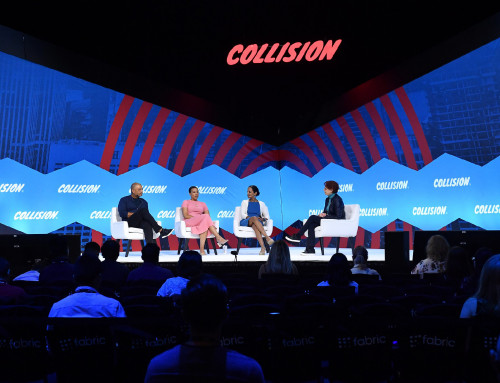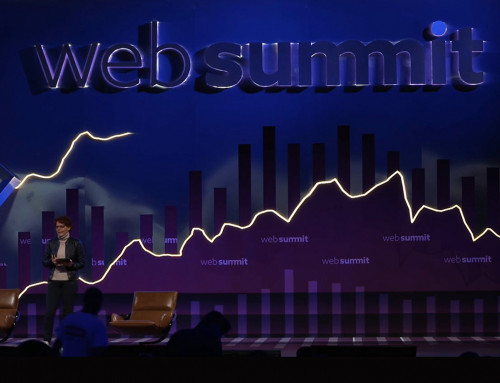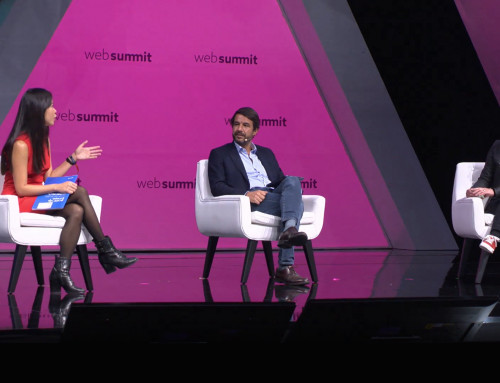News
March 2018
Does your personality influence the work environment that’s best for you?
Working for a startup or a corporation was one of the hot topics discussed at the Landing Festival, organized by Portuguese firm Landing.jobs, in Berlin at the Telekom Headquarters on Mar 14 and 15. A panel featuring Manjuri Sinah (Teamleader Technology Talent Acquisition, Zalando), Julie Ng (Enterprise Architect, Allianz), Hung Lee (CEO Workshape), and Capscovil founder Britta Muzyk-Tikovsky discussed aspects to be considered when deciding which type of company is best for you. Having worked in both worlds, the panel participants know it’s not a black and white answer and you can’t make a clear separation between startup and corporate world. There’s several factors that have an impact.
Culture
Probably one of the most influencing factors is culture. Large corporations have grown over decades, if not centuries, and have acquired their own culture. This is hard to change as it runs deep. It’s in the mind and heart of the employees who not seldom spend much of their career there. Changing such a culture does not happen over night. It takes persistence and a leadership that lives the change. It’s not done by swapping your business suit and tie for a pair of cowboy boots and jeans or shorts and flip-flops.
Startups with a shorter time-spanning existence are more inclined to change, and pivot if the need arises. That’s why they are perceived as more agile, but this is only true if the founders have an agile and flexible mindset. Startups need to think about what kind of culture they want to adapt, what rules and principles they want to set up. This is especially important to consider at an early stage, if the startup has the potential for fast and high growth.
Adapting to change may be harder for seasoned people as they carry a bag full of experiences with them and that’s why in large corporations you often hear the well-known “we’ve always done it this way, it works and that’s why we continue to do it this way”. They also tend to resist change that the C-suite wants them to adapt, for example if an external hipster from the startup world is hired and brings in new ideas. What these seasoned people may forget is that variables change and the only constant for success is change. What was true yesterday may not be true today anymore. This is especially true in the technology with its fast advancements. There are prominent examples for great companies that nearly went out of business because of this thinking. Just take Kodak or Nokia. A thoughtful approach to include seasoned people into the change process will help to get their buy-in.
When looking at culture, diversity within the workforce has a major impact. Very often companies offer their employees incentives for referral of friends. While referrals might help you hire new employees quickly it’s important to not only check them against the required skills but also include an assessment to make sure they fit the culture and complement the team. It’s crucial for the company that they can work with more people than just their friends. Therefore, a good advice is to not include multiple referrals of the same person into that specific team. Most people tend to refer others that are like-minded. Hiring only people that support your thinking will create a what’s referred to the “bro-culture” and destroy diversity, if there was one in the first place, and with it innovation.
Flexibility and Structure
Another major differentiator is flexibility in decision making within the job. This is defined by the amount of processes for both administrational and manufacturing-related tasks. Enterprises with a large workforce need processes due to the sheer size or due to the products they manufacture. As startups grow into larger enterprises they need to set up processes to handle the workload. Running over to the desk of your colleague to decide on hiring a new employee or building a new product or pursuing a certain project that has an influence on the whole company is just not as viable in a corporation as it is in a small startup. Defined boundaries must be taken into consideration and processes help with decision making.
Typically, corporations decide on focus areas to be worked on during the fiscal year and if you’re idea is way out of scope it’s hard to get permission and resources to do it. However, it also makes sense to question certain processes if they sound unreasonable. In some cases, it might even turn out that the processes only exist on paper and where never implemented. Knowing this might help your case. When you’re working in a startup or enterprise that gives you the freedom to decide on a new product, service or project there’s one golden rule that applies to both the startup and the corporate world.
It is something that runs deep in the DNA of mid-sized corporation W.L. Gore, probably best known for their GORE-TEX® brand and their approach of limiting the size of an organizational group – a “plant” – within the company to 150 people (this is based on the concept by Robin Dunbar who said that the maximum number of people that we are efficiently and effectively capable of interacting with socially is 150).
The principle for decision making is called “waterline”. Imagine the company that you work for is like a ship that carries the whole team. On this ship, you have the freedom to make decisions, for example on how to best grow your business, your responsibility and your knowledge. Of course, fairness for everybody involved is paramount and you need to commit to the action that you decide on. However, before making a decision it is fundamental to reflect on what impact it will have on the company including its clients and its reputation. Take every aspect into account. Will it drill a whole beneath the waterline, damage the ship and its cargo, keep it from maneuvering into the intended direction or, in the worst case, make it sink and destroy everything completely?
To some people flexibility in how they do their work is also important. Setting you own schedule, working from any place you like or even going on a “workation” is only feasible in certain jobs. Mostly this is related to “digital” jobs like programming, designing, writing etc. where you have a defined deadline and can work towards it in batches almost autonomously. When you meet the deadline, it doesn’t matter if you worked during the day or at night or in a café, at home or in the office. But if you’re the production manager of a company that runs several production lines where one line builds upon another and products are shipped every day you need to follow a set schedule. Customer-facing roles like sales and consulting depend to a large extend on the schedules of the customer.
Innovation
In order to integrate the innovational spirit of a startup into a corporation, the amount of processes the innovation team must follow needs to be limited to an absolutely minimum while maintaining a high level of responsibility for each employee. This is best done by having a separate group for new business development. This can be a department set-up in the matrix organization as part of a horizontal function like the sales and marketing group or – if the new product has the potential to disrupt a whole market – even as a stand-alone company that is financed by but detached from the mothership – just like a VC would finance a startup.
The approach in a large corporation for creating and presenting a proof-of-concept / MVP or pilot project with a client is not all that different from the one in a startup. Both need an eco-system to make it happen. The difference is where that eco-system is. The startup works with an external one that may include VCs, business and technology partners or even backers of a crowdfunding campaign. The new business department as part of a corporation first looks for stake holders with budget and power in the matrix and across the chain of commands inside the mothership. If necessary, external resources can then be hired.
Access to the people in the respective eco-systems might be as easy or as hard in both startup and enterprise. The time it takes to build the system does not neccessarily depend on the type of company – startup or corporation – but more on the the ability to find the right people, and on the grit, perserverance and trustability of the team, with a dash of luck thrown in for good measure. More and more corporations adopt an open-door policy that allows people to directly approach decision makers at all levels of the hierarchy. A difference lies in the impact of the outcome. If the market does not adapt the new product / solution, the business department of the corporation is likely to have a bigger safety net by being part of the mothership.
The Take-Away
What’s the best way to decide if to work for a startup or a corporation?
Asking yourself these questions can help:
- What work environment do you prefer?
- What impact do you want to have with your work?
- Are you a person that is comfortable with going on a rollercoaster ride (mostly true for the work environment in startups) and that has the grit to endure this emotional ride over a longer time or do you feel more secure within a defined and proven structure with a safety net?
- How much are you willing to compromise on your freedom?
- Do you like to take decisions and are you willing to live with the consequences or do you prefer somebody else to set the scene for you?
And if you have set your sight on a few targets already it’s worthwhile to do a background check on their culture (do they have rules that you might not be comfortable with) and leadership behavior (i.e. how did the company handle a stressful situation like customer complaints / a social media shitstorm, downsizing and handing out pink slips etc.) In order to find out if you fit in and feel respected for who you are it’s also helpful to check how the management presents themselves and behaves in public etc.









